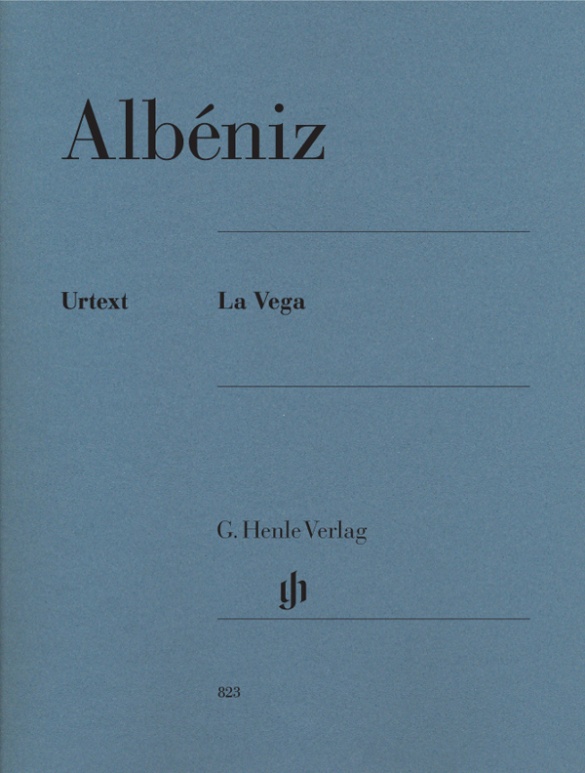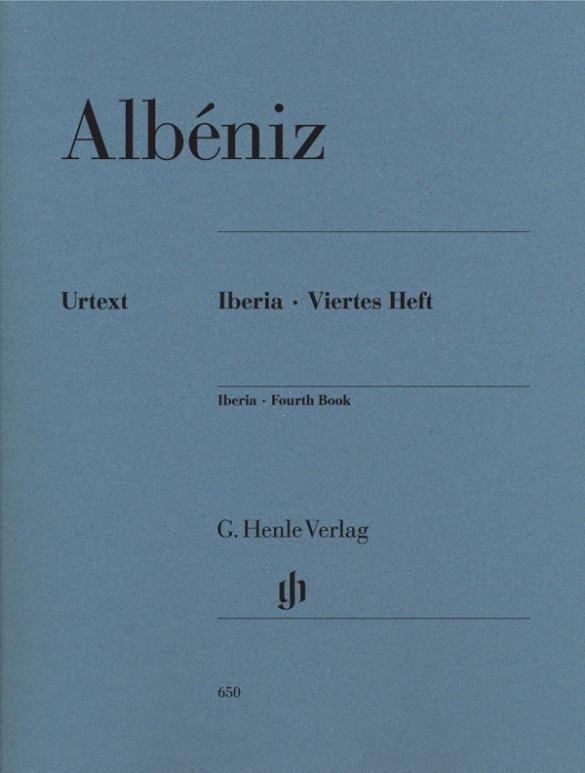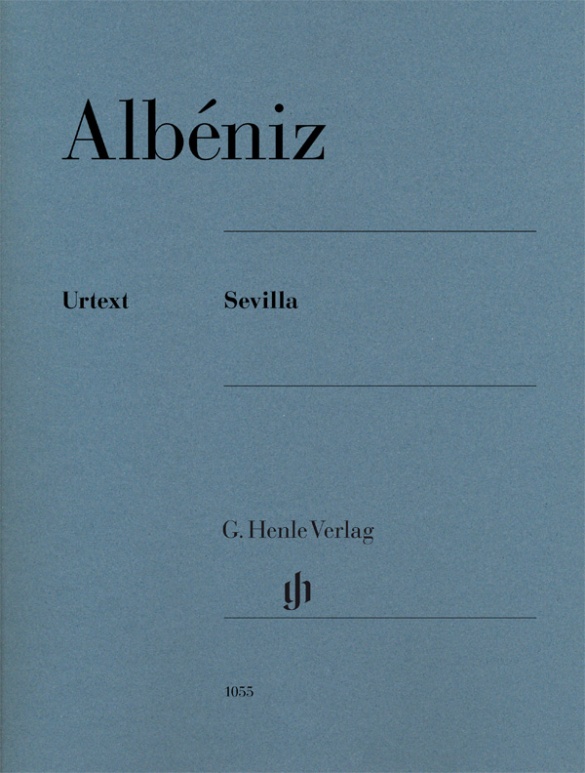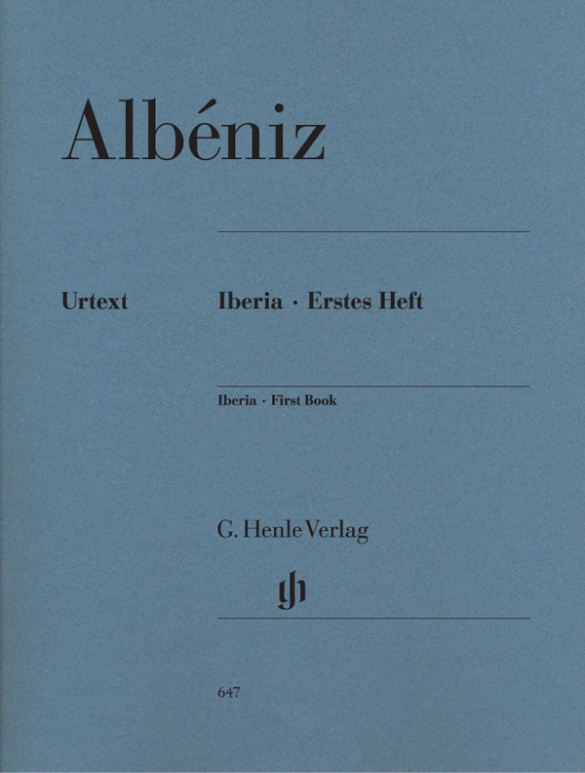

Isaac Albéniz
Iberia · First Book
“Spanish music with a universal touch”: that is what Isaac Albéniz set out to compose, and he brought it off to perfection in his Iberia Suite. At last all four “books” of this late-romantic masterpiece will be issued in an urtext edition worthy of the name, with top-quality appearance and engraving. Being manageable in their technique, Evocation, El Puerto, and Fête-Dieu à Séville – the three pieces in volume 1 – are especially popular. Enjoy these pieces in the same manner as Debussy, who wrote of Iberia: “One closes one’s eyes and is bedazzled by the sheer wealth of invention in this music!”
Read more about this edition in the Henle Blog.
mws-henle.cms.title-works.headline
mws-henle.cms-product-detail.composer-headline
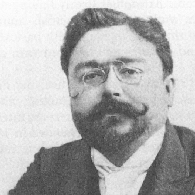
Isaac Albéniz
He numbers among the most important Spanish composers. His oeuvre consists predominantly of piano music and stage works.
| 1860 | Born in Camprodón (Gerona province) on May 29; soon thereafter his family moves to Barcelona; first piano instruction with his sister at age three and a half, first public performance at age five, subsequent piano studies with Narciso Oliveras. |
| from 1867 | Eventful youth due to concert tours with his father and sister to Paris, the Spanish provinces, then on his own to Puerto Rico and Cuba. |
| 1876–79 | Studies in Brussels. |
| 1883–86 | Studies composition in Barcelona with Felipe Pedrell, who persuades him of the value of Spanish folk music. This results in piano compositions such as “Recuerdos de viaje,” Op. 71 (1886–87); “España: Seis hojas de album,” Op. 165 (1890); “Cantos de España,” Op. 232 (1891–94). |
| 1889 | Breakthrough as a pianist, concertizing in Paris and London. |
| 1890–93 | Engaged in London by the agent Henry Lowenfeld; operetta “The Magic Opal” (premiere 1893). |
| 1893 | Relocation to Paris, studies with Vincent d’Indy and Paul Dukas. |
| 1895/96 | Premieres in Barcelona of his operas “Henry Clifford” (1895) and “Pepita Jiménez” (1896) with Spanish colorings in the libretti and music. |
| 1898–1903 | He plans the trilogy “King Arthur” (“Merlin,” “Lancelot,” “Guenevere”), of which just “Merlin” is completed; concert performance of the original version does not take place until 1998. |
| 1905–08 | Composes “Iberia,” one of his chief works for piano, in which he reworks the sounds and rhythms of Spanish folk music. |
| 1909 | Death in Cambô-les-Bains (Basses-Pyrénées) on May 18. |
mws-henle.cms-product-detail.author-headline

Norbert Gertsch (mws-henle.person.role.HERAUSGEBE)
Dr. Norbert Gertsch, born in 1967 in Rheinkamp/Moers, studied piano solo at the Mozarteum in Salzburg and read musicology and philosophy at the Paris Lodron University in Salzburg and the Ruperto Carola University Heidelberg on a scholarship from the “Studienstiftung des Deutschen Volkes”. In 1996 he wrote his doctoral thesis on Ludwig van Beethoven’s Missa solemnis (as part of the New Complete Edition) under Ludwig Finscher.
In the following year, he began to work at G. Henle Publishers, initially as an editor for electronic publishing. After working on a two-year project (1999–2000) sponsored by the German Research Foundation (DFG) preparing a new Beethoven Catalogue of Works, he became a scholarly editor at G. Henle Publishers. In 2003 he became Editor-in-Chief, in 2009 Deputy Managing Director and Head of Publishing. As of 1 January 2024, the Executive Board of the Günter Henle Foundation has appointed Dr. Norbert Gertsch, as the new managing director, succeeding Dr. Wolf-Dieter Seiffert.
Gertsch has published many Urtext editions for G. Henle Publishers, including volumes for a new edition of Beethoven’s Piano Sonatas together with Murray Perahia.
Product Safety Informations (GPSR)

G. Henle Verlag
Here you can find the information about the manufacturer of the product.G. Henle Verlag e.K.
Forstenrieder Allee 122
81476 München
Germany
info@henle.de
www.henle.com
Hervorragende Neuausgabe des 1906 komponierten ersten Heftes der Sammlung "Iberia" ... mit ausführlichem Vorwort, kritischem Bericht und … sehr hilfreicher Übersetzung der zahlreichen französischen Vortrags- und Tempobezeichnungen ins Deutsche und Englische (sehr empfehlenswert).
VdM Literaturempfehlungen, 2004Een uitgebreid historisch voorwoord met o.a. citaten uit Debussy’s lofrede en een gedetailleerde bronnenvergelijiking maken deze uitgave een ware schat om te koesteren.
Pianowereld, 2004L’apparato critico, a fine volume, rende conto dettagliatamente delle varianti riscontrate nelle suddette fonti, mentre la prefazione fornisce tutti i necessari dettagli relativi alla genesi dell´opera e alle sue vicissitudini editoriali.
Hortus Musicus, 2003推荐
autogenerated_cross_selling
本书目其他版本
本书目其他版本


